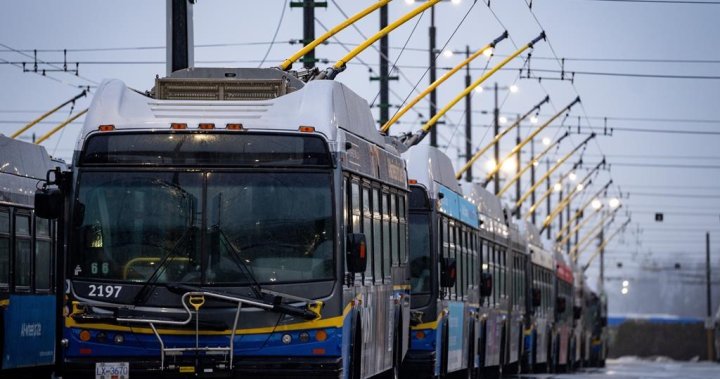Metro Vancouver mayors have approved a funding plan for TransLink aimed at easing overcrowding on the transit system. TransLink CEO Kevin Quinn described the investment plan as a “stopgap” measure to address congestion on the system as work continues to secure stable, long-term funding. The transit system is facing financial challenges due to lower fare revenue, declining fuel tax, and increased costs due to inflation. Without additional funding, TransLink may not be able to cover the costs of keeping the current system running and funding much-needed expansions. The region has seen significant growth, with 90,000 new people moving to Metro Vancouver last year, leading to overcrowding on transit trips in Surrey, Langley, and Vancouver during peak times.
TransLink’s funding sources are limited by legislation to fare increases and property tax hikes. The 2024 investment plan includes a planned fare increase of 2.3 per cent in July, along with a 10 cent increase to cash fares in 2025. Additionally, there will be a property tax increase of about one per cent in 2024, amounting to roughly $3.08 per month for a median home. The provincial government has committed $300 million in capital funding for new buses, with service improvements planned for 60 bus routes, extended evening hours on 11 bus routes, earlier SeaBus sailings on weekdays, and extended HandyDart service. The plan also includes increased train frequency on the Canada Line, Expo Line, and Millennium Line, as well as more capacity for the West Coast Express.
TransLink Mayors’ Council chair Brad West noted that the funding plan will “begin” to address some of the system’s problems but stressed that long-term stability remains at risk. He criticized the federal government for not providing any new funding for the system in its 2024 budget, calling it unacceptable for the region. Ottawa has pledged to create a new federal Permanent Transit Fund that would disburse $3 billion nationally annually, but not until 2026. TransLink has also yet to secure funding for its 10-year, $21 billion Access for Everyone plan, which includes projects like extending the Broadway subway to UBC, Bus Rapid Transit routes, and a gondola to Simon Fraser University.
In conclusion, the approved funding plan for TransLink in Metro Vancouver aims to address overcrowding on the transit system. CEO Kevin Quinn described it as a temporary measure to alleviate congestion while long-term funding is secured. The system is facing financial challenges due to lower revenue, declining tax, and increased costs, with overcrowding observed during peak times in certain areas. The plan includes fare and property tax increases, as well as service improvements and expanded capacity on various transit routes. However, concerns remain about long-term stability and the need for additional funding, with criticism directed at the federal government for not providing new funding. Ottawa has pledged to create a federal fund for transit but not until 2026, and TransLink is still seeking funding for its ambitious Access for Everyone plan. Further discussions and efforts will be needed to ensure the sustainability and growth of the transit system in Metro Vancouver.


